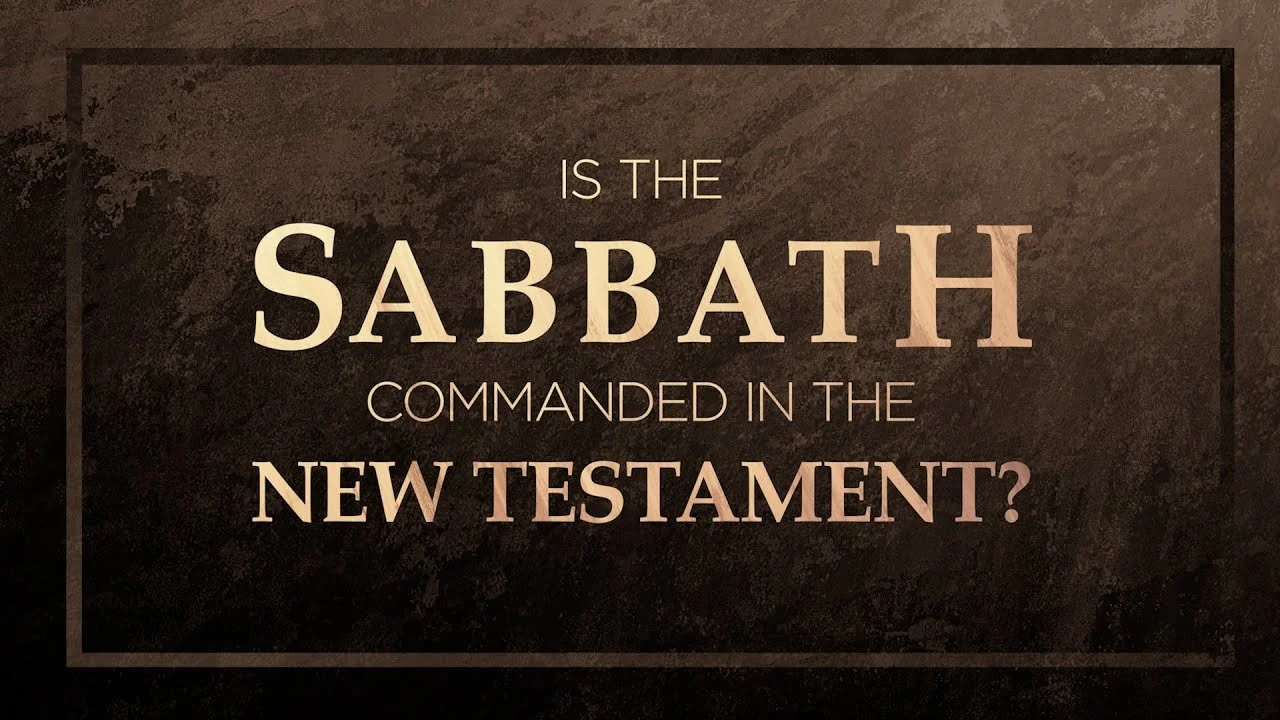Candace Owens rejects the premise of Charlie Kirk’s new book on honoring the Sabbath, saying, “I’m not going to do that because I’m Christian.” But are Sabbath observance and following Christ really mutually exclusive? According to the Bible, they are not.
What is Pronomian Theology?
Pronomian theology, or pronomianism, is a way of reading Scripture that affirms the ongoing authority of God’s Law given through Moses (Torah). In this video, we explore how pronomianism contrasts with antinomianism and how various Christian communities like Messianic Judaism and the Seventh Day Baptists approach the Torah today. If you’ve ever wondered about the relevance of commandments such as the Sabbath, festivals, and food laws in Christian ethics, this short video will give you a basic introduction to pronomian theology.
The Jerusalem Council: Applying the Torah to Gentiles (Acts 15)
Is the Torah (Law of Moses) relevant to Gentile followers of the Messiah? Many say no, citing the Jerusalem Council event in Acts 15 as proof. In this message, David Wilber challenges that common interpretation through a careful reading of this passage within its historical and theological context. Far from rejecting the Torah, we’ll see how the apostles wisely and faithfully applied the Torah to Gentile believers joining the Messianic Jewish community.
Set Free on the Sabbath (Luke 13:10–17)
In the Gospels, we see that Yeshua (Jesus) often chose to heal people on the Sabbath. Though some interpret these occasions as a challenge to the Sabbath itself, Yeshua’s words and actions actually reveal what true Sabbath observance is supposed to look like. In this message, David Wilber focuses on a specific example of healing in Luke 13:10–17 and what it teaches us about Yeshua’s perspective on the Sabbath.
Paul Does Not Condemn the Biblical Calendar in Galatians 4:10 | A Response to Steven Anderson
In Galatians 4:8–11, Paul rebukes the Galatians for observing “days and months and seasons and years.” What exactly does Paul mean by this phrase? The standard antinomian view, represented by Pastor Steven Anderson, is that this is a reference to the biblical calendar outlined in the Law of Moses. Thus, Paul is condemning the observance of the Sabbath and biblical festivals, or so the argument goes. But is that really what this passage teaches? In this video, we take a closer look at the context and historical background of Galatians 4:10. In contrast to Pastor Anderson, I contend that Paul is not chastising the Galatians for observing the biblical calendar, but for something entirely different.
Marital Intimacy on the Sabbath: Does it Violate the Commandment?
Sabbath-Keeping Baptists? Meet the Seventh Day Baptists (Interview w/ Nicholas J. Kersten)
It is widely acknowledged that the earliest Christians observed the seventh-day Sabbath in obedience to the Fourth Commandment. What is less often acknowledged is that there have always been Christian communities that continued to honor the seventh-day Sabbath throughout history. One such community is the Seventh Day Baptists, which emerged from the Protestant Reformation. I am excited to be speaking with Nicolas Kersten, the Director of Education and History for the Seventh Day Baptist General Conference, to learn more about this Sabbatarian Christian tradition.
What Wes Huff Got RIGHT About the Sabbath on the Joe Rogan Experience
Enslaved to Sabbaths and Festivals? (Galatians 4:8-11)
In Galatians 4:8-11, Paul rebukes the Galatians for observing “days and months and seasons and years.” But what exactly does Paul mean by this phrase? The standard antinomian view interprets this passage as Paul condemning the observance of the Sabbath and biblical holy days. However, in this video, we present reasons to question that interpretation and propose an alternative understanding.





















